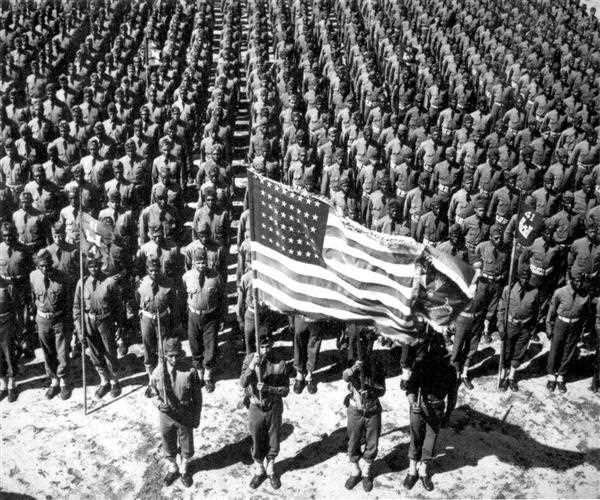In the years after World War I Americans immediately achieved the conclusion that their nation's cooperation in that war had been a deplorable oversight, one which ought to never be rehashed. Amid the 1930s, along these lines, they sought after various methodologies went for averting war.

At first, the real players in this exertion were American peace social orders, a considerable lot of which were a piece of bigger worldwide developments. Their plan called for extensive scale demilitarization and a global bargain to abrogate war. Their endeavors proved to be fruitful, as 1922 saw the consenting to of a noteworthy arrangement among the considerable forces to diminish their quantities of war vessels. After six years a large portion of the world's countries marked the Kellogg-Briand Pact, in which the signatories swore never again to go to war with each other.
In any case, occasions in the right on time to mid-1930s drove numerous Americans to trust that such understandings were deficient. All things considered, they didn't dissuade Japan from possessing Manchuria in 1931, nor four years after the fact did they prevent the German government from approving an enormous new arms development, or Italy from attacking Ethiopia.
The U.S. Congress reacted by passing the Neutrality Acts, a progression of laws prohibiting arms deals and advances to nations at war, with the expectation this would evacuate any potential reason that the United States may have for entering a European clash.
At the point when in 1939 war broke out between Germany from one perspective, and Britain and France on the other, President Franklin D. Roosevelt obediently summoned the Neutrality Acts. Nonetheless, he trusted this was an in a general sense diverse war from World War I. Germany, he accepted (and most Americans concurred with him) was for this situation an unmistakable assailant. Roosevelt in this way tried to give help to the Allies, while as yet keeping the United States out of the war. He started by requesting that Congress alter the lack of bias laws to permit arms deals to the Allies. In the two cases, the governing body consented to FDR's recommendations, yet simply after an exceptional verbal confrontation.
The topic of how included the United States ought to end up in the European war profoundly partitioned the nation. From one viewpoint, Roosevelt and the supposed "internationalists" guaranteed that a program of help to Great Britain and different nations battling against Germany would make genuine U.S. interest in the war pointless. On the opposite side stood the individuals who were called "neutralists," who trusted that the president's approaches were making it progressively likely that the nation would wind up in another unfortunate outside war.
This level-headed discussion was all the while seething when Japanese airship assaulted Pearl Harbor on December 7, 1941. Now plainly, similar to it or not, the United States would be a full member in the Second World War.